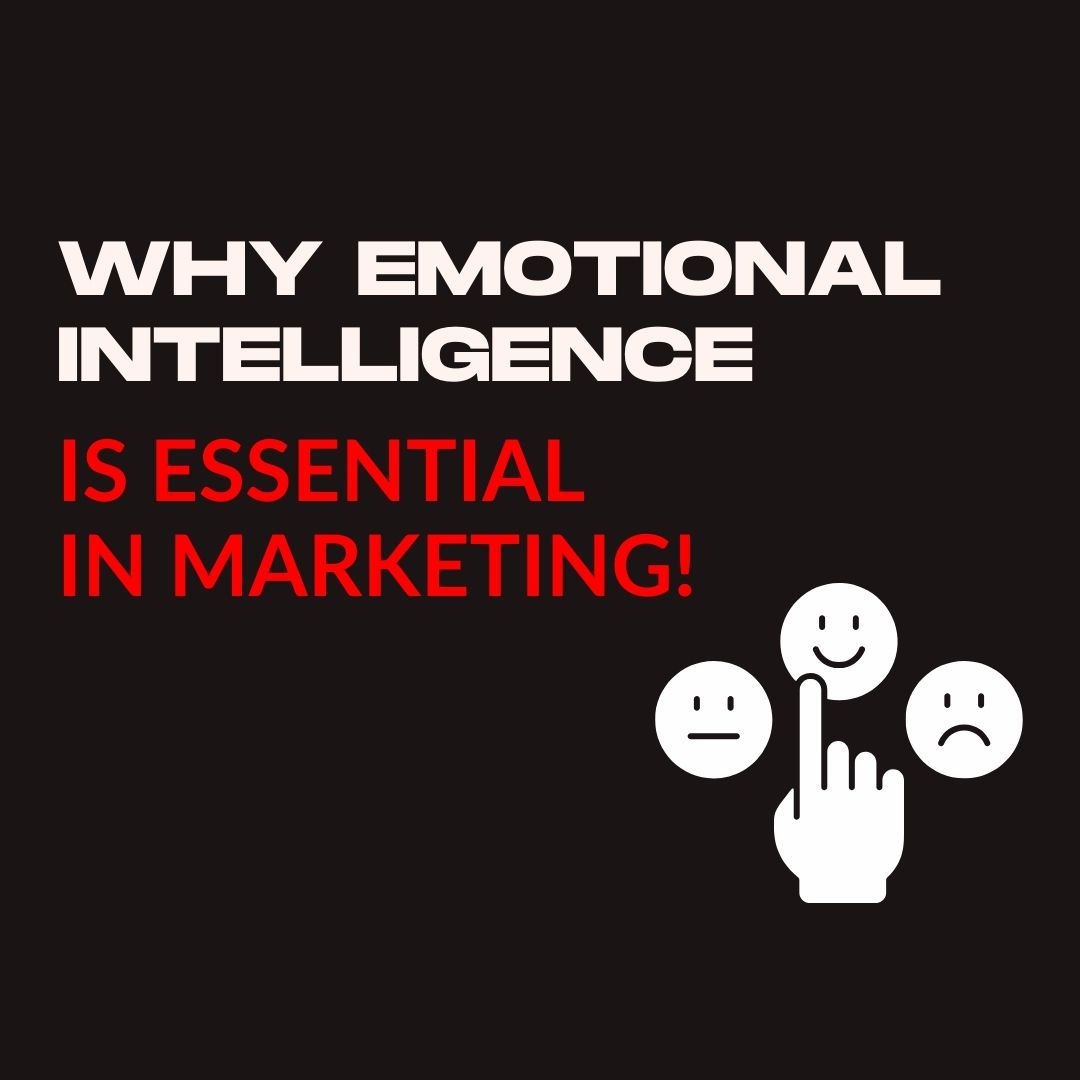Marketing is all about understanding the needs and desires of your target audience and providing them with the right solution at the right time. In today’s digital age, where consumers are more empowered than ever before, it’s important for marketers to not only have a deep understanding of their audience but also the ability to empathize with them on a deeper level. This is where emotional intelligence comes into play.
Emotional intelligence refers to the ability to identify and manage one’s own emotions as well as the emotions of others. It’s a crucial skill that allows marketers to connect with their audience on a deeper level and build stronger relationships with them. In this blog, we will discuss the importance of emotional intelligence in marketing and provide tips on how to develop this skill.
Why is Emotional Intelligence Important in Marketing?
- Building Trust: Trust is the foundation of any relationship, and this is especially true in the world of marketing. Emotional intelligence helps marketers to connect with their audience on a deeper level and build trust by showing that they understand their audience’s needs and desires.
- Creating Engaging Content: Emotional intelligence allows marketers to create content that resonates with their audience. By understanding their audience’s emotions and motivations, marketers can create content that is engaging and relevant, leading to higher engagement and conversions.
- Understanding Consumer Behavior: Emotional intelligence helps marketers to understand the behavior of their target audience. By understanding their audience’s emotions and motivations, marketers can predict their behavior and create marketing campaigns that resonate with them.
- Developing Brand Loyalty: Emotional intelligence helps marketers to develop brand loyalty by building stronger relationships with their audience. By understanding their audience’s emotions and needs, marketers can create campaigns that resonate with them on a deeper level, leading to increased loyalty and advocacy.
Tips to Develop Emotional Intelligence in Marketing
- Listen to Your Audience: Take the time to listen to your audience and understand their needs and desires. Use social listening tools and surveys to gather feedback and insights from your audience.
- Be Empathetic: Try to understand your audience’s emotions and motivations. Put yourself in their shoes and try to see things from their perspective.
- Use Storytelling: Storytelling is a powerful tool that can help marketers to connect with their audience on a deeper level. Use stories to create an emotional connection with your audience.
- Practice Self-Awareness: Develop your own emotional intelligence by practicing self-awareness. Identify your own emotions and learn to manage them effectively.
- Use Data: Use data to understand your audience’s behavior and preferences. Use this data to create marketing campaigns that resonate with them on a deeper level.
here are a few examples of brands that have successfully implemented Emotional Intelligence marketing in their campaigns:
- Always #LikeAGirl: In 2014, Always launched its #LikeAGirl campaign, which aimed to challenge gender stereotypes and empower young girls. The ad featured people of all ages being asked to act out what it means to run, throw, or fight “like a girl.” The result was a powerful message that showed the negative impact of gender stereotypes on young girls’ self-esteem. The campaign was a huge success and won multiple awards, including a Cannes Lion Grand Prix.
- Coca-Cola “Taste the Feeling”: In 2016, Coca-Cola launched its “Taste the Feeling” campaign, which focused on the emotional experience of drinking Coca-Cola. The campaign aimed to create a strong emotional connection between the brand and its consumers by emphasizing the positive feelings associated with drinking Coca-Cola. The campaign was a huge success, with the brand reporting a significant increase in sales and market share.
- Nike “Find Your Greatness”: In 2012, Nike launched its “Find Your Greatness” campaign, which aimed to inspire people to pursue their athletic dreams and goals, no matter how big or small. The campaign featured a series of ads that focused on everyday people pushing themselves to achieve their goals, with the tagline “Find Your Greatness.” The campaign was a huge success, with the brand reporting a significant increase in sales and brand awareness.
- Apple “Think Different”: In 1997, Apple launched its iconic “Think Different” campaign, which aimed to inspire people to think outside the box and challenge the status quo. The campaign featured a series of ads that celebrated the achievements of people who had changed the world, from Albert Einstein to Martin Luther King Jr. The campaign was a huge success and is still considered one of the most iconic marketing campaigns of all time.
These examples show that Emotional Intelligence marketing can be a powerful tool for brands looking to connect with their audiences on a deeper level. By tapping into people’s emotions and values, brands can create campaigns that resonate with their audiences and inspire them to take action.
In conclusion, emotional intelligence is a crucial skill for marketers in today’s digital age. By understanding the emotions and motivations of their audience, marketers can create campaigns that resonate with them on a deeper level, leading to increased engagement and conversions. By following the tips provided in this blog, marketers can develop their emotional intelligence and create more effective marketing campaigns.



